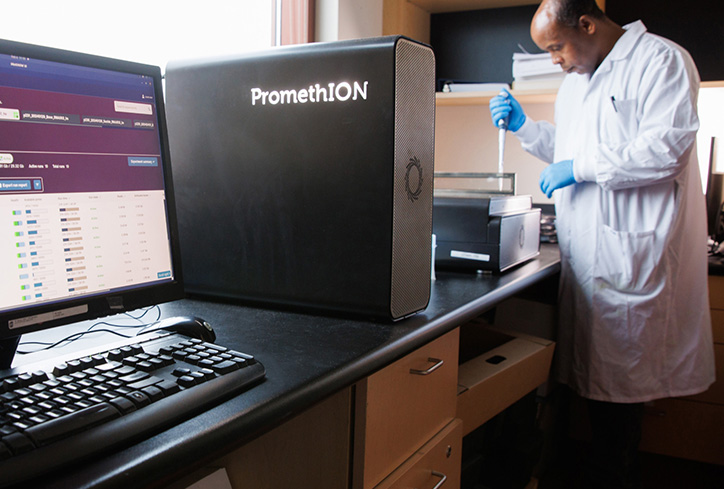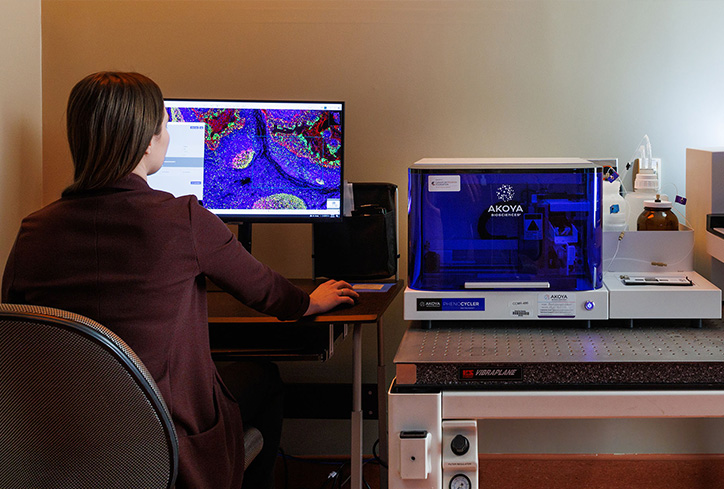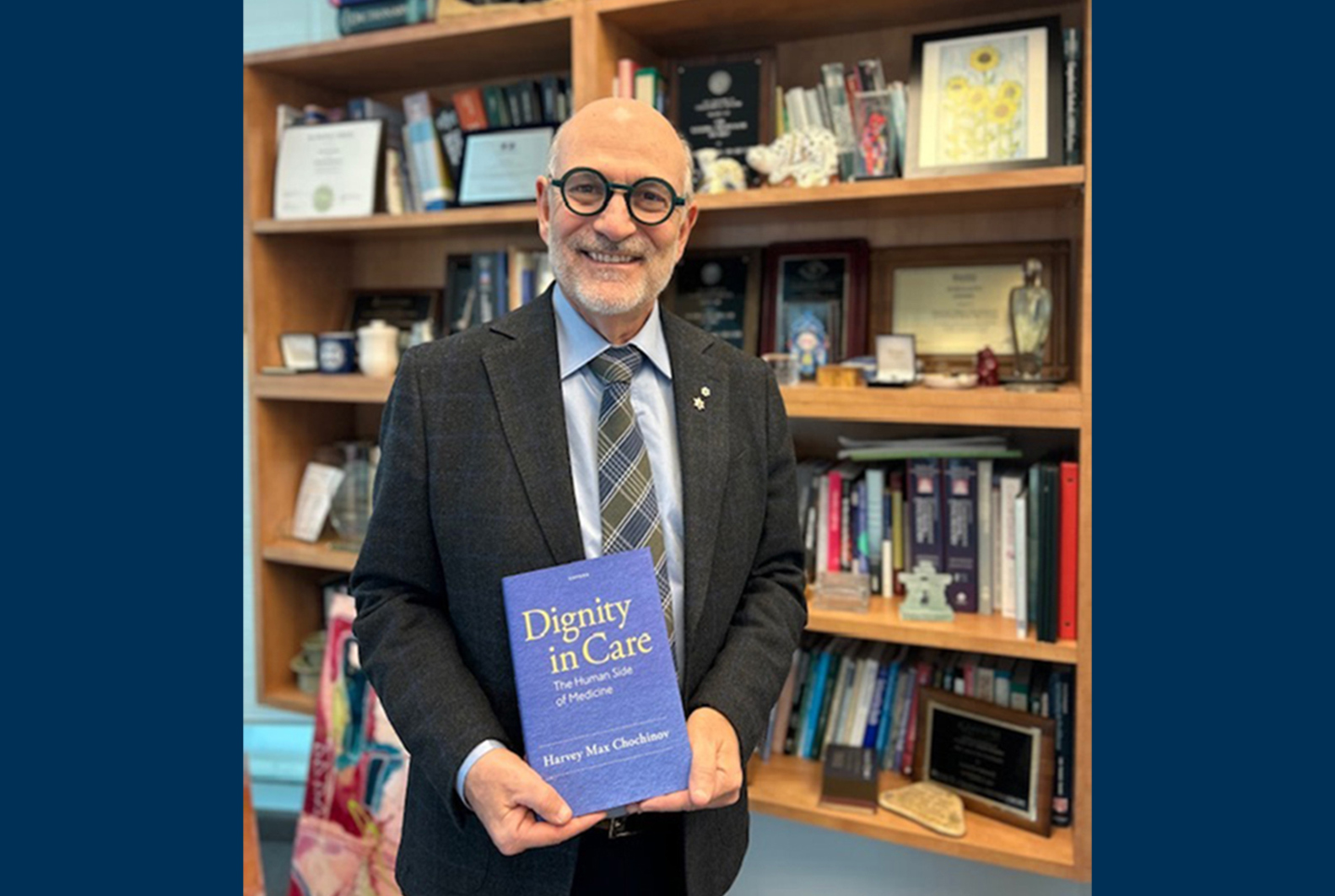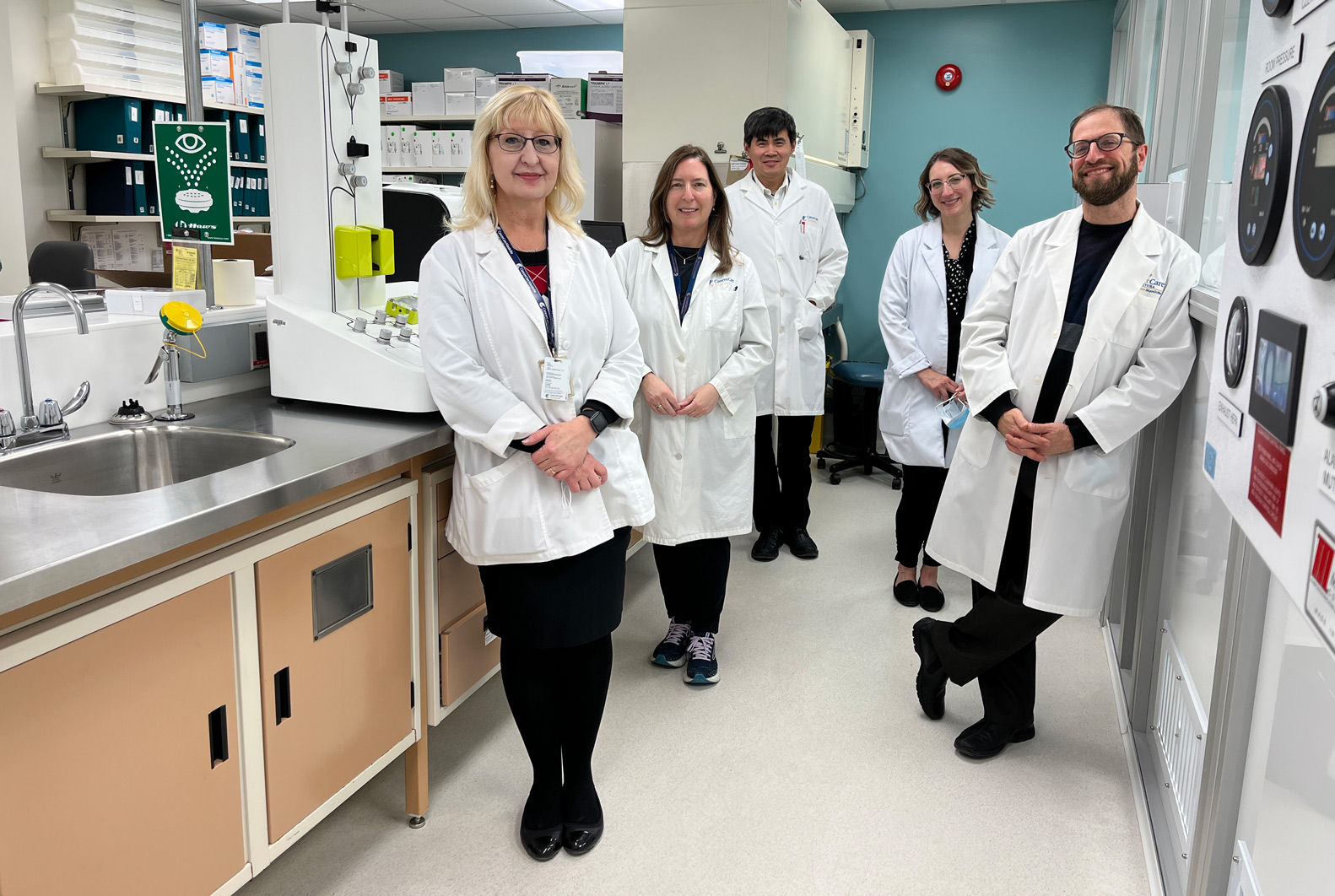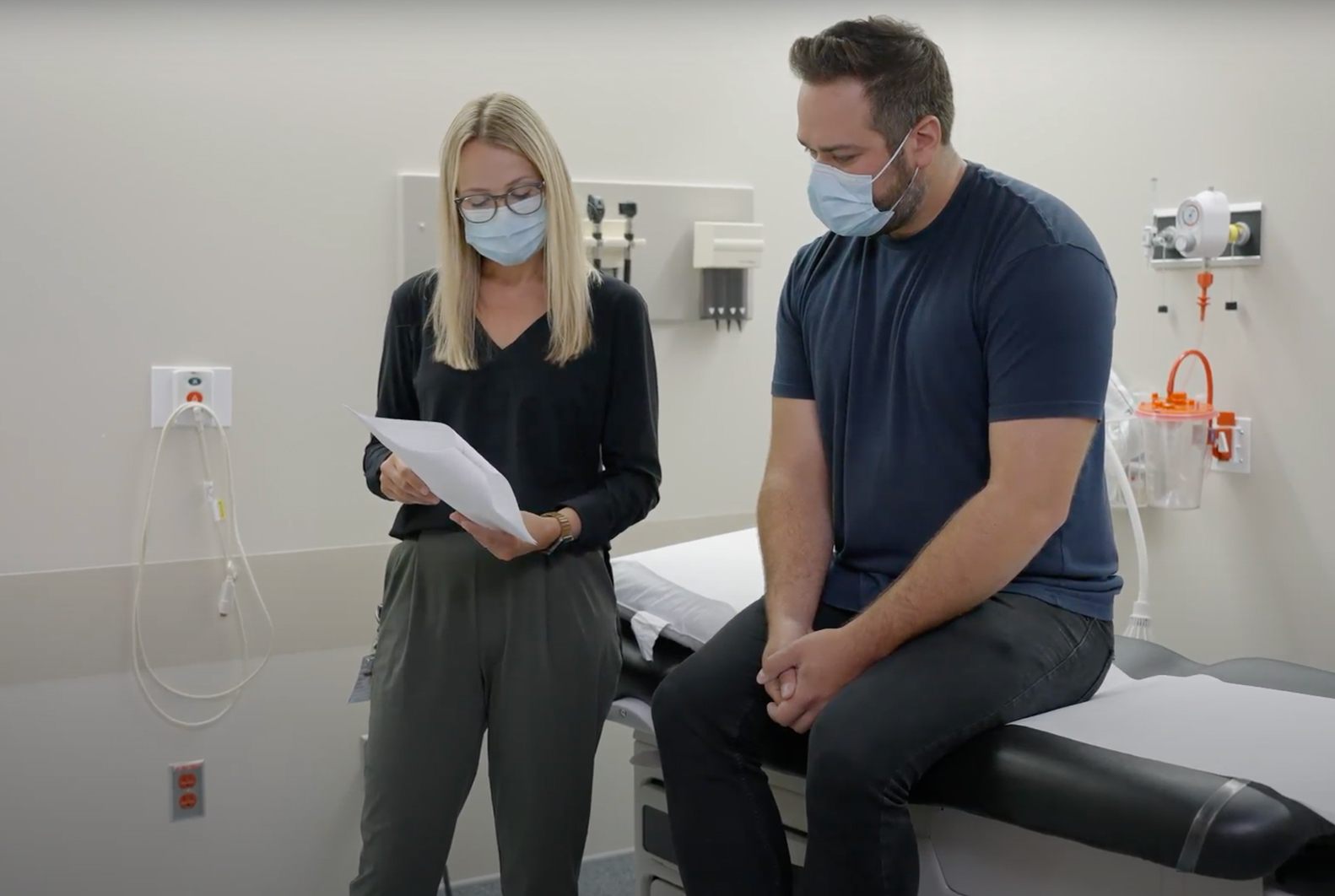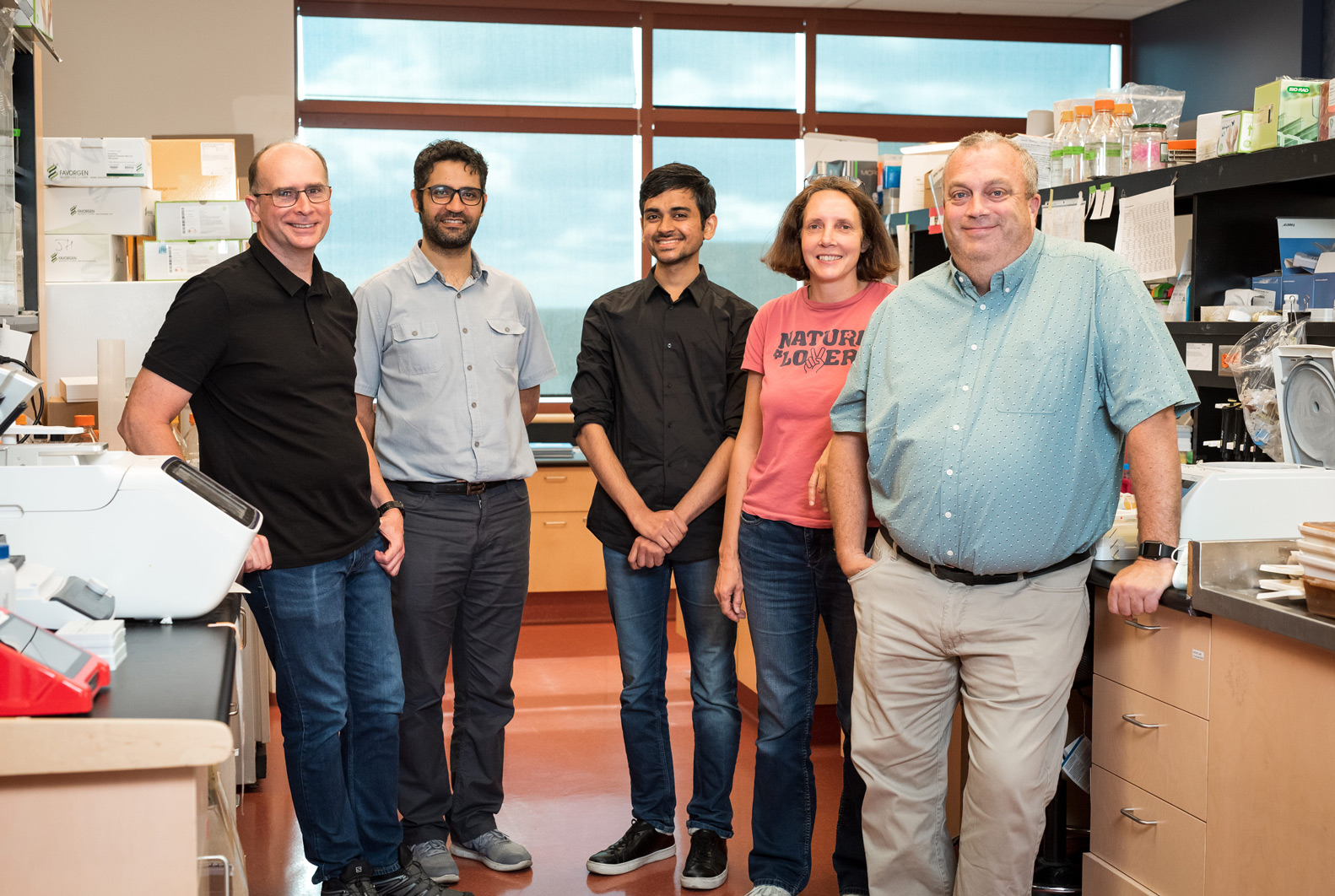Our Researchers
The science is only as good as our people
Providing excellent care to patients requires an exceptional team of scientists and clinicians. These best and brightest people are attracted to centres that have a vibrant research program. Manitobans are fortunate to have a research institute situated within a major Canadian cancer centre, which continues to grow stronger and attract the next generation of scientists. Today, we have over 70 scientists researching cancer and blood disorders. They collaborate as team members within Manitoba, nationally, and around the world.
Your Future
Attracting the best and brightest
The Paul Albrechtsen Research Institute CancerCare Manitoba is embedded within the sole provincial cancer authority in Manitoba. This this provides scientists with access to diverse patient populations – from pediatric to geriatric, and all cancer and blood disorder types with one centre. With a growing emphasis on multidisciplinary collaboration, our scientists find the support and partnerships to pursue innovative research. Continued investment in infrastructure and technology from multiple funding sources further expands opportunities.
Research Excellence Through Multidisciplinary Teams
Scientific discovery contributes to the best care for Manitobans
A priority for institute leadership is to create the optimal environment for research discovery and innovation. Central to our approach is fostering multidisciplinary teams. Working in multidisciplinary teams of clinicians, scientists, technicians, research nurses, trainees, and bioinformaticians, the Institute brings together diverse skill sets to translate basic science discoveries into improved patient outcomes.
These teams further promote research excellence through partnerships between clinical and academic partners at CancerCare Manitoba, Shared Health, Regional Health Authorities, and the University of Manitoba. This progress is exciting and will directly benefit Manitobans.
Three Interrelated Research Disciplines
Cancer patients are at the centre of our research efforts. We support our patient focus through a continuum of 3 related research disciplines: Basic and Translational Research, Clinical Research, and Health Services Research. Our scientific investigation, staffing, resources and investment are organized into these disciplines. Together they encapsulate the full breadth of our cancer and blood disorder research.

Fundamental and Translational Research
Researching new and better ways to prevent, detect, and treat cancer and blood disorders through clinical research
Laboratory or basic research focuses on understanding how nature works. Translational research applies those findings to develop new solutions to medical problems.

Clinical Research
Researching new and better ways to prevent, find and treat cancer through clinical trials
Investigator-initiated trials study promising treatments, new technology, and other clinical interventions in people. Research focuses include hematology, radiation oncology, and patient experience.

Health Services Research
Investigating the structure, processes, and effects of healthcare services and systems
This multidisciplinary field examines the accessibility, quality, delivery, costs, and patient outcomes of healthcare services to optimize treatment delivery.
Research Innovation Highlights
Some of the most innovative and relevant cancer research in the world today is being conducted here at the Paul Albrechtsen Research Institute at CancerCare Manitoba. Many of our studies are multidisciplinary, utilizing several research platforms. Most importantly, the work is led by a motivated and brilliant team of scientists, clinicians, nurses, lab assistants, and administrators.
Research Institute News

April 23, 2025
CancerCare Manitoba Announces Funding for Research in Manitoba
CancerCare Manitoba has announced new funding to support continued research into childhood cancer as youth transition into adulthood and leave the pediatric health care system. Collaborating with researchers in PROMISE — Pediatric Research in Oncology in Manitoba: Innovation, Science & Excellence — a province-wide pediatric cancer research initiative, this additional funding will help track and study youth after they turn 18.
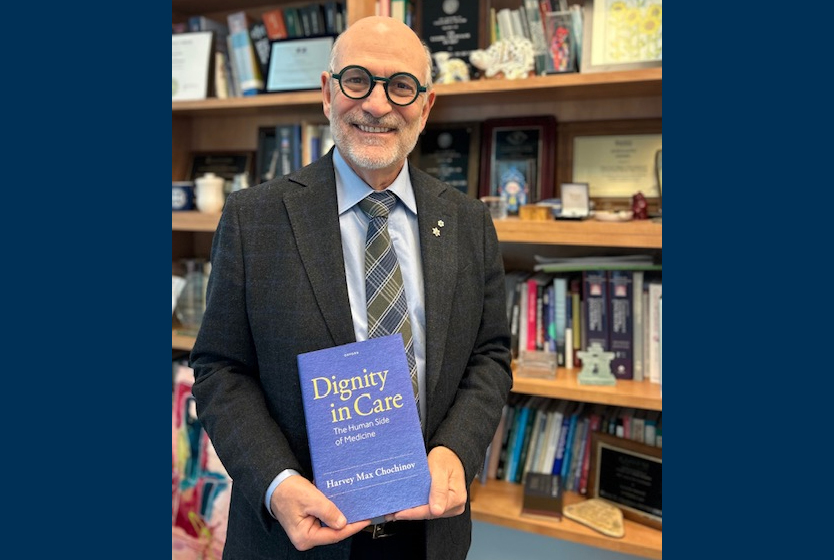
May 16, 2024
New book from Institute researcher, Dignity in Care: The Human Side of Medicine helps shape the future of patient care
Senior Scientist at CancerCare Manitoba Research Institute, Dr. Harvey Max Chochinov has published a new book, Dignity in Care: The Human Side of Medicine, providing insight into how the disposition and attitude of healthcare providers indelibly shape patient experience.

May 16, 2024
New trial looks at reducing bleeding risk in cancer patients while also developing novel research methods
A new Investigator-Initiated Clinical Trial (IICT) led by Primary Investigator, Dr. Brett Houston, called the MYELO-CAN TXA trial, aims to see whether Tranexamic Acid (TXA) can help prevent bleeding in patients with certain blood cancers such as acute leukemia and myelodysplastic syndrome.



